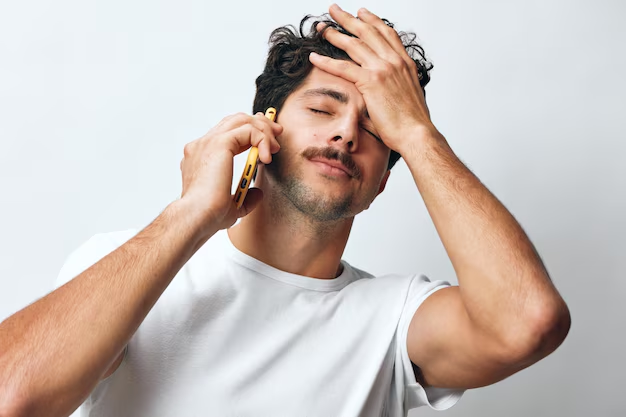Why Does My Acne Itch and What Can I Do About It?
If you've ever battled acne, you're likely familiar with its physical and emotional toll. Beyond the more common issues of redness, pain, and visual impact, an often puzzling symptom emerges: itchiness. Itchy acne might seem like a minor concern compared to other symptoms, but the urge to scratch can add a whole new layer of discomfort and frustration. Let's delve into the reasons why acne can be itchy and explore what steps you can take to find relief.
The Science Behind Acne Itching
Acne, a skin condition that affects millions worldwide, primarily occurs when hair follicles become clogged with oil and dead skin cells. This can lead to various forms of acne, such as blackheads, whiteheads, pimples, cysts, and nodules. But why does it itch?
Inflammation and Immune Response
One of the primary reasons acne is itchy is due to the inflammatory response. When your body detects a threat, such as bacteria within clogged pores, it triggers an immune response, resulting in inflammation. This inflammation not only causes redness and swelling but can also stimulate nerve endings, leading to an itchy sensation.
Dry Skin and Over-Cleansing
While many people associate acne with oily skin, those who repeatedly cleanse or use harsh products can strip their skin's natural oils, leading to dryness. Dry skin is a common culprit of itchiness. The lack of moisture compromises the skin barrier, triggering irritation and the urge to scratch.
Allergic Reactions and Sensitivities
Certain acne treatments contain ingredients that may cause allergic reactions or irritation in some individuals. Products with benzoyl peroxide, salicylic acid, or retinoids are effective for many but can provoke itchiness if you have sensitive skin or if used excessively.
Secondary Infections
Sometimes, acne becomes infected with bacteria like Staphylococcus aureus. This secondary infection can cause additional symptoms, including pain and itching, as the body responds to the bacteria's presence.
Practical Ways to Manage Itchy Acne
Understanding why your acne is itchy is the first step in finding relief. Here are some practical ways to manage and reduce itchiness:
Hydration is Key
Ensuring your skin maintains its natural moisture balance is crucial. Opt for a gentle, hydrating cleanser and follow up with a non-comedogenic moisturizer. This routine helps maintain the skin barrier and prevents dryness, reducing itchiness.
Choose the Right Products
Selecting appropriate skincare products is essential for managing itchy acne:
- Look for fragrance-free and hypoallergenic options to minimize irritation.
- Gradually introduce active ingredients like retinoids or benzoyl peroxide to allow your skin to acclimate.
- Consider products containing anti-inflammatory ingredients such as niacinamide or aloe vera.
Resist the Urge to Scratch
Scratching not only worsens inflammation but also risks spreading bacteria, potentially exacerbating your acne. Instead, try using a cool compress or applying a calamine lotion to soothe the itch.
Natural Remedies and Alternatives
In addition to commercial products, some natural remedies may provide relief:
- Aloe Vera: Known for its soothing properties, aloe vera can help calm inflamed, itchy skin.
- Tea Tree Oil: With its antimicrobial benefits, diluted tea tree oil can reduce bacteria and inflammation.
- Oatmeal Baths: A colloidal oatmeal bath may offer relief from itchiness due to its anti-inflammatory properties.
Consult a Professional
If your acne remains persistently itchy or worsens despite your best efforts, consider seeing a dermatologist. They can help identify any underlying issues, such as bacterial infections or allergies, and tailor a treatment plan to suit your individual needs.
When Itching Could Indicate Something More
While itchiness is sometimes a typical response to acne, it's essential to recognize when it may signal a more serious condition.
Atopic Dermatitis (Eczema)
For some, itchy acne might be exacerbated by conditions like eczema, which involves a chronic itchy rash. If your skin is itchy and flaky, even beyond acne-affected areas, investigating potential eczema can be beneficial.
Fungal Acne
Different from regular acne, fungal acne is caused by an overgrowth of yeast and can manifest as small, itchy pustules. Fungal acne requires distinct treatment, often responding better to antifungal medications rather than traditional acne treatments.
Contact Dermatitis
If itchiness develops after using a new skincare product, the likelihood of contact dermatitis should be considered. This occurs when your skin becomes sensitized to certain ingredients, leading to an allergic reaction.
Lifestyle Changes to Support Your Skin
In addition to topical treatments, certain lifestyle habits can significantly influence your skin's health and comfort.
Diet and Nutrition
Your diet can have a direct impact on your skin. Consuming foods rich in omega-3 fatty acids, such as salmon and walnuts, along with antioxidant-rich fruits and vegetables, may help reduce inflammation and support overall skin health.
Stress Management
Stress is a known factor in exacerbating acne and itchiness. Implement stress-reduction techniques such as yoga, meditation, or regular exercise to help maintain balance in your body and mind.
Sleep and Hydration
Ensure you get adequate sleep and drink plenty of water. Restorative sleep helps your body repair itself, including your skin, while proper hydration is crucial in maintaining a healthy skin barrier.
Understanding Your Skin's Needs
Embarking on a path to resolve itchy acne requires a keen understanding of your skin's unique needs. From choosing the right products and managing your lifestyle, every step you take contributes to healthier, less itchy skin.
By adopting appropriate skincare practices and lifestyle choices, you can significantly enhance your skin's condition and reduce itchiness. However, remember that individual experiences vary and consulting a dermatologist for personalized advice could be beneficial.
Key Takeaways for Managing Itchy Acne:
- 🧴 Moisturize: Keep skin hydrated to reduce dryness-induced itchiness.
- 🔬 Mind Your Products: Use gentle, hypoallergenic skincare.
- 💤 Avoid Scratching: Use cool compresses for relief.
- 🥗 Balanced Diet: Include anti-inflammatory foods to support skin health.
- 🛌 Rest & Relax: Manage stress and prioritize sleep to benefit skin conditions.

